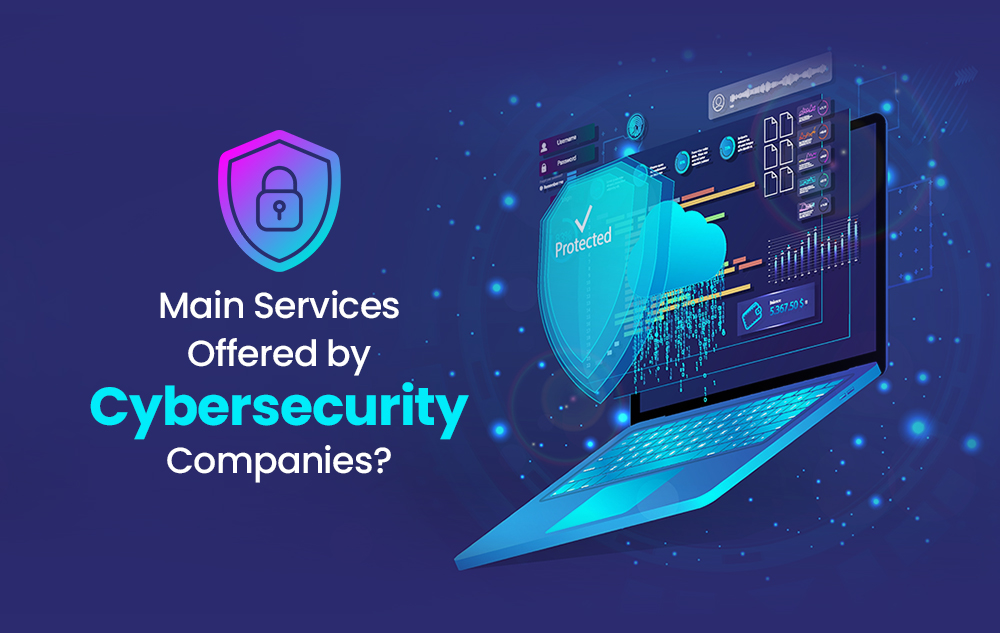Cybersecurity Services
What Are the Main Services Offered by Cybersecurity Companies?
- Written by
Monika - Posted on
December 19, 2024

In an increasingly digital world, the importance of cybersecurity cannot be overstated. Businesses, governments, and individuals are all potential targets for cybercriminals, making the role of cybersecurity companies essential in safeguarding sensitive information and systems. These companies provide a wide range of services tailored to protect against, detect, and respond to cyber threats. Below is an in-depth look at the main services offered by cybersecurity firms.
Risk assessment is often the first step in any comprehensive cybersecurity strategy. Cybersecurity companies evaluate an organization’s current security posture by identifying vulnerabilities, threats, and risks that could potentially harm the business.
Following the assessment, these companies provide risk management strategies to mitigate identified vulnerabilities and enhance overall security.
Managed Security Service Providers (MSSPs) offer outsourced monitoring and management of security devices and systems. These services are ideal for businesses that lack the in-house expertise or resources to handle cybersecurity internally.
MSSPs act as an extension of a company’s IT team, providing specialized skills and technologies to protect sensitive data and systems.
Penetration testing, also known as pen testing, involves simulating cyberattacks on an organization’s systems to identify weaknesses before malicious actors can exploit them.
Ethical hackers work closely with organizations to report their findings and recommend actionable improvements to strengthen defenses.
Even with the best preventive measures, cyber incidents can occur. Cybersecurity companies provide incident response services to minimize the impact of these events.
Incident response teams are critical in reducing downtime and ensuring business continuity during and after cyberattacks.
Employees are often the weakest link in an organization’s cybersecurity chain. To address this, cybersecurity firms offer training programs designed to educate staff on recognizing and responding to cyber threats.
Regular training sessions empower employees to act as the first line of defense against cyber threats.
As organizations increasingly migrate to cloud-based solutions, protecting these environments has become a top priority. Cybersecurity companies offer specialized services to secure cloud platforms.
Cloud security services are essential for maintaining the integrity and confidentiality of data stored in cloud infrastructures.
IAM services help organizations manage user identities and control access to critical systems and data. This reduces the risk of unauthorized access and insider threats.
Effective IAM strategies safeguard against breaches caused by compromised credentials.
Protecting sensitive data is a cornerstone of cybersecurity. Cybersecurity firms provide solutions to ensure data remains secure both in transit and at rest.
By securing data, organizations can maintain customer trust and comply with regulatory requirements.
Advanced Threat Protection services focus on identifying and mitigating sophisticated cyber threats that traditional security measures might miss.
ATP services are critical for defending against highly targeted and evolving cyberattacks.
Many industries are subject to strict cybersecurity regulations. Cybersecurity companies assist organizations in meeting these requirements.
Compliance services help organizations avoid hefty fines and maintain their reputations.
With the rise of the Internet of Things (IoT) and Operational Technology (OT), new security challenges have emerged. Cybersecurity companies offer specialized services to protect these environments.
These services are vital for industries like manufacturing, healthcare, and energy, where IoT and OT play crucial roles.
Cybersecurity companies provide a diverse range of services to address the ever-evolving landscape of cyber threats. From risk assessment and managed security to advanced threat protection and compliance assistance, these firms are indispensable in ensuring the safety of digital assets. By leveraging the expertise and solutions offered by cybersecurity professionals, organizations can proactively defend against threats and maintain trust in an increasingly interconnected world.
Take your business to new heights by offering unmatched mobility to your customers!


Privacy Policy I Terms & Conditions
© Algosoft Apps Technologies (P) Ltd. (CIN) U93030UP2015PTC075117
Share this article